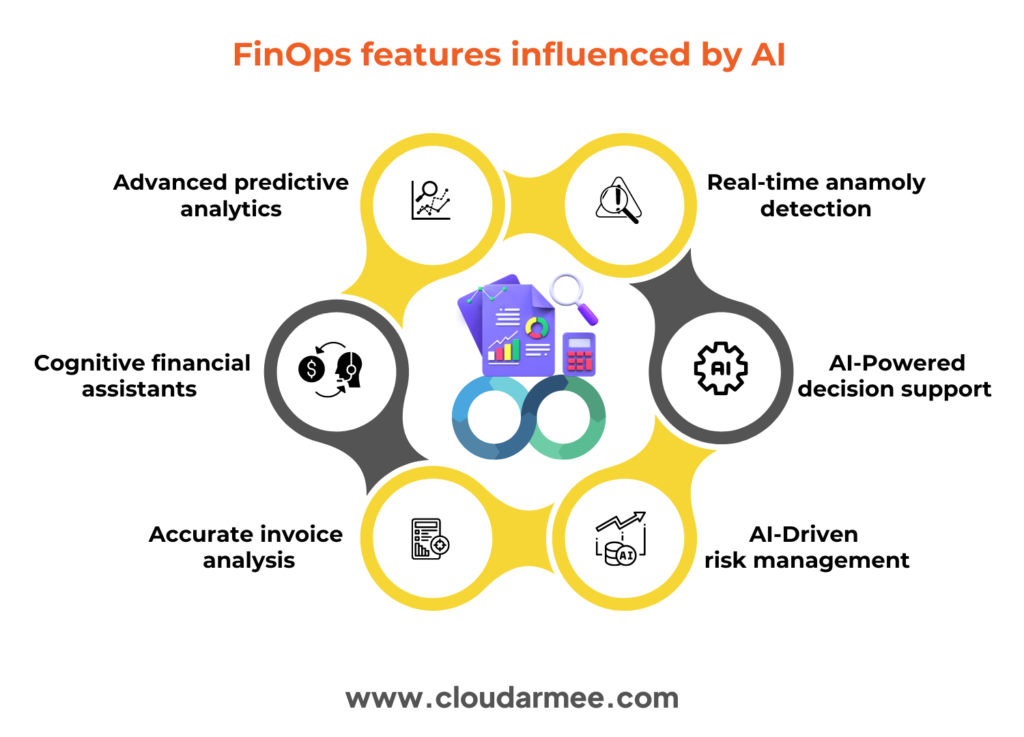
A recent survey of 200 enterprise IT decision-makers revealed that organizations integrating Artificial Intelligence (AI) into their financial operations (FinOps) workflows to cut IT costs are 53% more likely to indicate savings exceeding 20%. Enterprises are widely adopting FinOps not solely for its technological merits but also for its broader business advantages.
Many enterprises stand to gain by incorporating FinOps capabilities early on, even preceding their initiation of the cloud journey. Here are some business benefits associated with FinOps:

The role of Artificial Intelligence (AI) is expected to become more pronounced in upcoming FinOps models. AI-driven algorithms and predictive analytics hold the potential to enhance cost forecasting accuracy, detect anomalies, and offer optimization recommendations. Future FinOps frameworks might leverage AI to automate cost optimization, streamline financial processes, and furnish real-time insights for informed decision-making.
Incorporating AI technologies into FinOps empowers organizations to control cloud consumption and expenditures, optimize costs, and enhance decision-making capabilities, fostering increased efficiency and agility in cloud financial operations. AI-enhanced FinOps enables organizations to harness data-driven insights and automation, facilitating financial discipline, maximizing the value derived from cloud investments, and ensuring competitiveness in the dynamically evolving cloud landscape.
AI-driven FinOps is pivotal in aligning cloud spending with business objectives and priorities. By offering detailed insights into the cost determinants of various workloads and applications, organizations can make informed decisions based on data, allocate resources, prioritize investments, and optimize expenditures to support strategic initiatives. AI also enables organizations to promptly adapt and respond to evolving business needs and market dynamics. CloudArmee assists enterprises in managing their cloud consumption and expenditures. Contact us to explore how we can initiate this process.